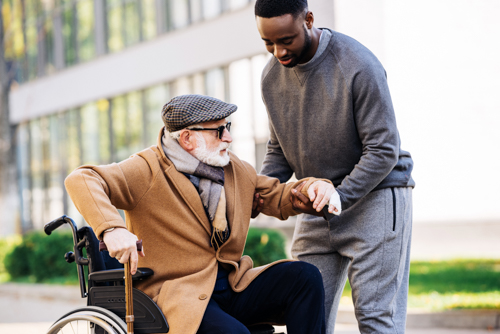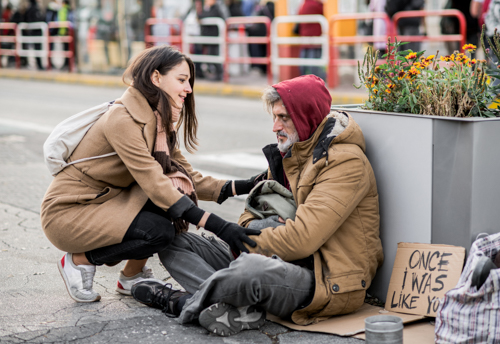Humanitarian
Initiatives
Make a Donation
Join the Movement
Humanitarian Initiatives
Support Kindness is a 501(c)(3) nonprofit organization based in Hawaii. Our mission is to spread kindness around the world through compassionate storytelling, and to train people to cultivate kindness and compassion through meditation. In addition to our educational initiatives, Support Kindness raises public awareness about global humanitarian crises, and aims to provide humanitarian aid worldwide.
Our intention is to help alleviate human suffering and maintain human dignity by inspiring increased empathy and by providing financial support to a variety of causes. We believe that if kindness is globally accepted and applied, everyone will benefit.
Our Top Humanitarian Initiatives
Support Kindness raises public awareness about global humanitarian crisis, including refugees, handicapped people, underprivileged children, victims of domestic violence, homeless individuals, and communities in need or facing a crisis. Our aim is to help alleviate suffering and maintain human dignity. We believe that if kindness is globally accepted and applied, everyone will benefit.
Refugees Worldwide

refugees
The world is currently experiencing the largest refugee crisis in history. As of 2021, there are a total of 82.4 million people who have been forced to flee their homes, 50 percent of whom are children.
Disabled People Worldwide

DISABLED PEOPLE
One billion people or fifteen percent of the world’s population live with a disability and the prevalence of disability is higher in developing countries. People with disabilities often experience inequality and discrimination.
Orphaned Worldwide Annually

Underprivileged Children
Globally, there are almost 1 billion children that lack basic nutrition and clean water. Of this, more than 132 million children are annually classified as orphans, with over 13 million having lost both parents.
victims of domestic violence worldwide annually

domestic violence
There are more than 736 million victims of domestic violence worldwide each year. The United States has more than 10 million victims, with an average of 24 people per minute being victims of rape or physical violence.
Homeless People Worldwide

HOMELESSNESS
Globally, there are 154 million homeless people. These individuals live in temporary shelters, abandoned buildings, parks, under a bridge, or on the streets, and are often overlooked by society.
Trafficked Humans Worldwide

Human trafficking
There are currently over 40.3 million victims of human trafficking, or modern-day slavery, of whom as many as 79 percent are cases of sexual exploitation. Estimates suggest that about 50,000 people are trafficked into the United States each year, most often from Mexico and the Philippines.
Refugees
“The tragedy of war is that those who had nothing to do with the decisions that led to war suffer the most.”
—Dr. Zeal Okogeri
The world is currently experiencing the largest refugee crisis in history. As of 2021, there are a total of 82.4 million people who have been forced to flee their homes, 50 percent of which are children. Most refugees are fleeing from Syria, Venezuela, Afghanistan, South Sudan, and Myanmar. Refugees are crammed in camps for years until they are granted asylum in foreign lands. These camps offer minimal access to consistent education, food, and other necessities.
Funding can help Support Kindness to collaborate with other charity organizations and donate funds, food and other essentials to existing refugee camps and communities of newly resettled refugees. Funding can also help charitable organizations create events to educate and encourage the public to help refugees integrate into new communities.


People with Disabilites
By definition, a handicapped individual is a person who has some condition that markedly restricts their ability to function physically or mentally or socially. One billion people or fifteen percent of the world’s population live with a disability and the prevalence of disability is higher in developing countries. People with disabilities often experience inequality and discrimination.
According to the United States Department of Health and Human services, 61 million Americans are living with a disability. In addition to the emotional and logistical issues a disability can bring, it can also mean serious financial stress both for the person with a disability and their loved ones. Health conditions, such as stroke, arthritis and other musculoskeletal problems, diabetes, heart disease, cancer, nervous system disorders, mental illness, including depression, congenital disorders, and injuries sustained in accidents are common causes of disability.
Your support can help Support Kindness provide emotional support through its volunteers to help remedy the loneliness and depression which often accompanies disability. Support Kindness can also provide financial assistance to pay for highly beneficial alternative medical therapies, such as acupuncture, chiropractic, naturopathy, dietary supplements, hyperbaric oxygen therapy, and massage, for which a large population of handicapped individuals simply cannot afford to pay out-of-pocket.
Underprivileged Children
and Orphans
Globally, there are almost 1 billion children that lack basic nutrition and clean water. Of this, more than 132 million children are annually classified as orphans, with over 13 million having lost both parents. In the United States, a total of 11.9 million children live in poverty, including 40,000 children in Hawaii. The costs associated with raising children are one of the many reasons that families fall into poverty, along with job losses and pay cuts, a transition from a two-parent household to one, and a family member developing a disability.
In developing countries, rapid population growth tends to stretch both national and family budgets thin with the increasing numbers of children to be fed and educated, and workers to be provided with jobs. Slow growth in national economy, and lack of progress in reducing income inequality contribute greatly to poverty. In addition, little or no access to resources, large-scale protracted violence, hunger, little or no access to clean water, sanitation, and hygiene, lack of education, lack of jobs and livelihood, lack of savings, poor public works and infrastructure, climate change, and lack of government support create poverty.
Education: School fees and related costs, such as books, uniforms, supplies, and transportation posed a significant barrier to children’s education, and often linked to non-attendance, dropout, and the entry of children into child labor.
Your support will help Support Kindness to sponsor children to get educated and gain access to clean water and basic nutrition. Volunteers can help humanitarian organizations provide services in the areas of health care, education, and other life-enhancing services.


Domestic Violence
Domestic violence, which is violence between people in the same domestic circle. Domestic violence has many root causes, including trauma, witnessing family violence as a child, having a low self-esteem, exposure to violent media, violence in the home or neighborhood, major life stressors/frustration and lack of knowledge of how to respond or react to them, and lack of basic education about communication.
Globally, there are more than 736 million victims of domestic violence each year. The United States has more than 10 million victims, with an average of 24 people per minute being victims of rape or physical violence. In the state of Hawaii, 1 in every 7 women have been raped in their lifetime and more than 13 percent of the adult population has experienced domestic violence.
Your support will help Support Kindness to collaborate with other charity organizations and provide supplies and necessities to shelters that house domestic violence victims, provide education and awareness for communities, and pay for counseling professionals to help victims heal.
Homelessness
With the impact of Covid19, the number of homeless people has grown exponentially worldwide. Lack of affordable housing, low income, racial injustice and discrimination, domestic issues, eviction, job loss, divorce or separation, mental or physical health issues, drug or alcohol abuse, natural disasters, political instability, and war, all contribute to the growing number of homeless people. Globally, there are 154 million homeless people. These individuals live in temporary shelters, abandoned buildings, parks, under a bridge, or on the streets, and are often overlooked by society.
In the United States, there’s an estimated 580,466 homeless people, including 6,548 in Hawaii. Native Hawaiians and other Pacific Islanders have the highest rate of homelessness (109 out of every 10,000 people).
Your support will help Support Kindness recruit volunteers to provide highly needed human attention, and provide some basic needs such as food, socks, personal hygiene items, gift cards, transportation passes, pet food for animal companions, and rain gear.


Human Trafficking — Modern Slavery
Human trafficking is a growing global problem. The root cause are the traffickers themselves, motivated by self-interest. Other causes are poverty, political unrest, war, and cultural practices that devalue, abuse and exploit women and girls. There are currently over 40.3 million victims of modern-day slavery of which as many as 79 percent are cases of sexual exploitation.
Estimates suggest that about 50,000 people are trafficked into the United States each year, most often from Mexico and the Philippines. Globally, profits from human trafficking are estimated at $150 billion a year and are flowing through the U.S. financial system.
Your support will help Support Kindness to collaborate with other humanitarian organizations to provide aid, including housing, food, clothing, translation services, housing, legal assistance, advocacy, medical care, mental health counseling, substance abuse treatment, transportation, life skills education, financial assistance, employment, and childcare.
